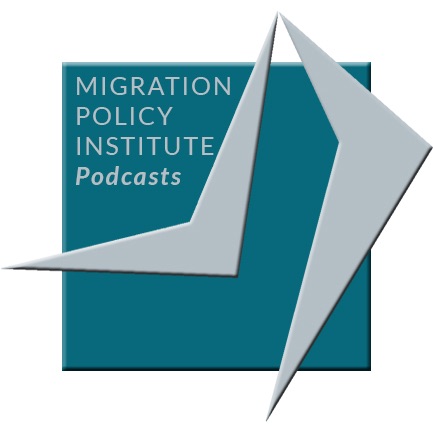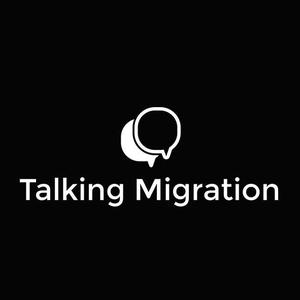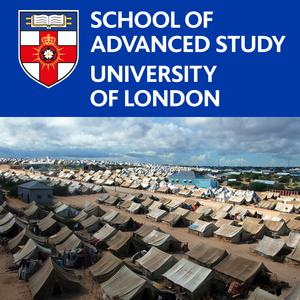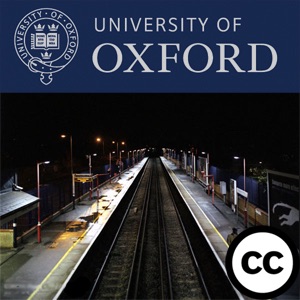
Migration Policy Institute Podcasts
Migration Policy Institute
MPI is a nonprofit, nonpartisan think tank dedicated to the study of the movement of people worldwide (immigration, migration)
- 24 minutes 25 secondsChanging Climate, Changing Migration: The Reverse of Climate Migration: Should There Be a Right Not to Be Displaced amid Climate Change?
The international humanitarian protection system that was built in the aftermath of World War II does not offer protection for people displaced by climate change. In this episode, former UN Deputy High Commissioner for Refugees T. Alexander Aleinikoff, who is now Executive Dean of The New School for Social Research, calls the refugee system “broken.” Rather than expanding to accommodate climate migrants, he makes the case for starting over with a new paradigm focused on a right not to be displaced. Such a system would be designed to help people stay in their homes through climate adaptations and resilience, he argues, and provide a mechanism for seeking justice.
15 November 2024, 6:25 pm - 23 minutes 15 secondsChanging Climate, Changing Migration: How We Talk about Climate Migration Shapes Treatment of “Climate Refugees”
The ways in which people talk about climate migration can affect how individuals are treated. While many activists frame climate migrants as blameless victims of circumstance and even refer to them as “climate refugees,” this approach does not always lead to public sympathy. Moreover, highlighting the role of climate in displacement can unintentionally cause a backlash among host communities, who themselves likely are experiencing or expecting to face similar environmental challenges. In this episode, we speak with Natalia Banulescu-Bogdan, who is deputy director of MPI's International Program and our in-house expert on public opinion and migration messaging, about the narratives and public attitudes towards climate migrants.
4 October 2024, 4:04 pm - 40 minutes 14 secondsChanging Climate, Changing Migration: A Warm Embrace in the Cold North? Climate Migration in Nordic Countries
The Arctic region is warming much faster than other parts of the world. Nordic countries—Denmark, Finland, Iceland, Norway, and Sweden—have a reputation for being at the forefront of efforts to combat climate change. But does their track record also extend to helping people who have been displaced by environmental impacts, internally and internationally? In this episode, we discuss the impacts and responses in the Nordic region. Our guests are the researchers Miriam Cullen and Matthew Scott, who are among the leaders of the Nordic Network on Climate Related Displacement and Mobility.
3 September 2024, 7:57 pm - 24 minutes 58 secondsChanging Climate, Changing Migration: "Coolcations” and “Last-Chance Tourism”: How Climate Change Is Upending Vacation Planning
Climate change is remaking vacations, particularly in hot months. Extreme heat can be deadly for tourists and events such as wildfires, hurricanes, and sea-level rise can devastate tourism-dependent communities. Tourism is also a major contributor to climate change, and some travelers have begun rethinking their plans, taking emissions into account as they consider transportation and destinations. This episode explores how climate change is affecting global tourism. Our guest is Daniel Scott, research chair at the University of Waterloo’s Department of Geography and Environmental Management and an international research fellow at the School of Hospitality and Tourism at the University of Surrey.
23 July 2024, 6:35 pm - 1 hour 2 minutesNext-Generation Strategies to Improve Language Access in Federally Supported Programs
More than 25 million U.S. residents have limited proficiency in English, and as the COVID-19 pandemic demonstrated, all levels of government have an important need to deliver services, outreach, and critical health and safety information to individuals and communities who communicate in languages other than English. Providing access to public services and information for individuals who have limited proficiency in English has been a civil rights requirement for federally funded state and local programs for decades. Ensuring these entities meet their language access obligations has become a more pressing concern in recent years due to the size, growth, and dispersal of the country’s immigrant and Limited English Proficient (LEP) populations.
Because federal funding reaches so deeply into state and local systems and so widely across the country, language access requirements affect virtually all sectors of government and cover many programs delivered by state and local governments, companies, and community organizations. However, significant gaps in compliance with these requirements by recipients of federal funds mean that language access often remains a goal rather than a reality.
During this webinar, speakers discuss research from the Migration Policy Institute’s National Center on Immigrant Integration Policy that details next-generation strategies the federal government can use to support state and local programs in effectively operationalizing and sustaining meaningful language access. Speakers also highlight current challenges in providing language access in federally supported programs and offer recommendations for how to weave language access into existing processes; maximize limited resources; and foster a more coordinated, effective, and efficient federal response to agency and public needs.
1 July 2024, 4:44 pm - 29 minutes 14 secondsChanging Climate, Changing Migration: What Brazil’s Disastrous Flooding Says about Climate Displacement Trends
Floods and other fast-moving natural disasters are becoming more common and more severe because of climate change. When these disasters strike, they can displace huge numbers of people. This episode turns to Brazil, where historic flooding in 2024 forced hundreds of thousands of people from their homes. Our guest is Valéria Emília de Aquino, a human-rights lawyer and researcher in Brazil.
26 June 2024, 5:07 pm - 1 hour 13 secondsMapping Global Human Mobility in an Increasingly Complex World
Human mobility has reached a new scale and complexity amid rapid transformations, ranging from changing climates and the COVID-19 pandemic to urbanization and demographic shifts. Following an unprecedented era of border closures during the pandemic, the past two years have seen a major rebound in human mobility, alongside new displacement crises, climate shocks, and the resurgence of labor migration in response to acute shortages. Global mobility flows continue to shift and diversify, featuring an increasingly complex mix of regular and irregular migration and displacement. Yet understanding the rapidly evolving nature of global mobility remains a challenge.
This webinar marks the launch of the latest Migration Policy Institute (MPI) and International Organization for Migration (IOM) research collaboration exploring the rich tapestry of human movement in a post-pandemic world. The conversation, featuring opening remarks by IOM Deputy Director General of Operations Ugochi Daniels, showcases findings from the report, which taps into IOM data that permit diverse analysis of movements.
Speakers highlight a mix of data-driven and human stories about the way that cross-border mobility has been spurred and disrupted in the wake of the pandemic. From a resurgence in short-term mobility in Southern Africa and labor migration to the Arabian Peninsula to diversifying flows across the Americas and an uptick in asylum seeking to Europe, the report and discussion explore the rapidly shifting nature of today’s mobility trends and outline the role of migration policy in managing and responding to growing challenges.25 June 2024, 6:13 pm - 1 hour 3 minutesConnecting Immigrant Communities to Infant and Early Childhood Mental Health Services
Young children in immigrant and refugee families can encounter mental-health risks related to their migration and integration experiences, ranging from discrimination and economic stress to persecution and violence in the case of young refugees. Infant and early childhood mental-health (IECMH) services have the potential to provide beneficial supports and treatment during the foundational early years for these young immigrants, promoting their healthy development and future well-being. However, many immigrant families, who are less likely overall to participate in early childhood services, face unique barriers to accessing IECMH supports across the spectrum of promotion, prevention, screening, and treatment.
In this webinar, speakers discuss the importance of IECMH and highlight approaches that have successfully connected immigrant and refugee families with beneficial and culturally relevant services. Featuring recommendations from a MPI policy brief, the discussion explored opportunities to expand the accessibility and responsiveness of IECMH services to immigrant communities.
18 June 2024, 7:54 pm - 25 minutes 43 secondsChanging Climate, Changing Migration: Migration, Climate Change, and Security in the Pacific
The U.S. military has long warned that climate change poses a challenge to global security. Instability and insecurity can be a result of unmanaged migration, with the potential for widespread climate displacement creating tensions in host communities. And they could also spark additional migration, if people flee precarious political dynamics. This episode, with Climate Migration Council member and retired U.S. Navy Pacific Fleet Commander Admiral Scott H. Swift, evaluates the security dynamics of climate change and migration, focusing on the Pacific.
31 May 2024, 1:09 pm - 30 minutes 2 secondsWorld of Migration: What Does It Take to Increase Refugees’ Access to Education and Work? Insights from Ethiopia
In recent years, the Ethiopian government has pledged to increase access to education and employment for the more than 900,000 refugees living in Ethiopia, most in camps. There have been ups and downs along the way, but a few key trends have emerged. In this episode of our podcast, Migration Policy Institute Europe Associate Director Camille Le Coz speaks with researcher Abis Getachew about the major policy shifts to open classrooms and jobs to refugees and whether they have been successful.
2 May 2024, 2:38 pm - 29 minutes 20 secondsChanging Climate, Changing Migration: Confronting the Ethical Questions around Climate Change and Migration
Do countries that are major polluters have a moral responsibility to aid people displaced by hurricanes, sea-level rise, and other events driven or exacerbated by climate change? What form might that responsibility take? For this episode, we are joined by Jamie Draper, who focuses on political philosophy and ethics at Utrecht University. While he argues that certain countries do have a responsibility to aid displaced people, labeled “climate migrants” by some, in his view that does not necessarily translate to offering them protection.
26 April 2024, 8:08 pm - More Episodes? Get the App
Your feedback is valuable to us. Should you encounter any bugs, glitches, lack of functionality or other problems, please email us on [email protected] or join Moon.FM Telegram Group where you can talk directly to the dev team who are happy to answer any queries.
 Talking migration
Talking migration
 Centre on Migration, Policy and Society (COMPAS)
Centre on Migration, Policy and Society (COMPAS)
 International Migration Institute
International Migration Institute
 Refugee Studies at the School of Advanced Study
Refugee Studies at the School of Advanced Study
 MSc Migration Studies
MSc Migration Studies